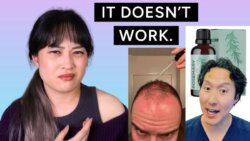Is synthetic braiding hair giving people cancer? Breaking down Consumer Reports’ tests
Is synthetic braiding hair giving people cancer? In February 2025, Consumer Reports announced that they had found carcinogens in all 10 products of artificial braiding hair they tested. They claimed this was putting the health of wearers and braiders at risk. But is this actually true, or is it fearmongering? Here’s the video version – keep scrolling for the article. Overblown …






